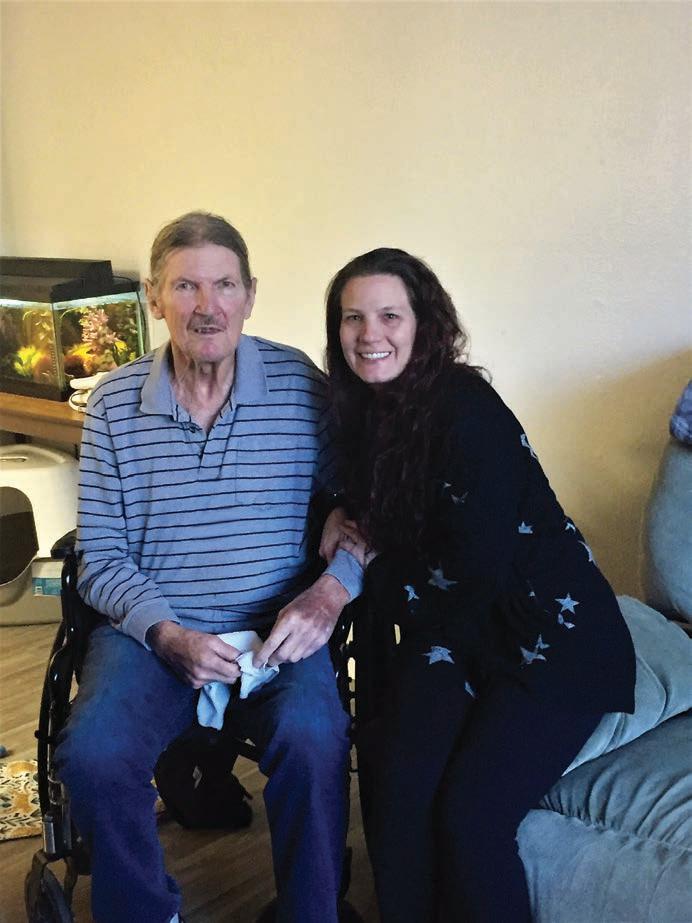
1 minute read
Parkinson’s slows life down, but doesn’t stop a family’s love
My dad is one of the smartest people I know. He attended a technical school and, in the 1980s, turned that into a small business repairing stereos, TVs, VCRs, and, later, computers. If it could be tinkered with, my dad could x it, and his skills were so in need that they provided for our family when I was growing up.
It was my mom and dad’s dream to raise a family in the mountains. ey accomplished this dream. My dad sold his business, we uprooted from our home in Arkansas and moved to a mountain home in Colorado. I was in the fourth grade.
Sometimes it’s hard for me to remember that my dad has Parkinson’s disease.
He was diagnosed about 12 years ago.
In many ways, he is the same Mr. Fixit. But in other ways, he is not. It’s the little things. e day I moved into my new condo, as a rst-time homebuyer this past fall, I thought nothing of it when asking my dad to bring his tools so he could change the front door lock. I thought this would be an easy chore for him while everyone else carried the heavy moving boxes up and down the stairs. at he remembered the tools is a win given his Parkinson’s. But my mom discreetly told me that he wouldn’t be able to change the lock — because of the cognitive skills he has lost over the years to the disease. And, thinking back, it’s possible that she brought the tools for him, though I didn’t ask.
FROM THE EDITOR
Again, it’s the little things that don’t seem to matter at the time, but add up, in retrospect, and show how much my dad has changed.
Parkinson’s disease is a progressive and degenerative brain disorder that a ects a person’s muscle movement. But it is so much more than a movement disorder.
e disease itself is not necessarily fatal, but complications can be serious and it can greatly diminish quality of life. Along with the motor, or movement, symptoms, there are many other symptoms. People with Parkinson’s can develop mood disorders, such as depression, anxiety, apathy and irritability. ere’s also dementia, an issue that a ects not just my dad, but our whole family. ings have become slower year by year in the 12 years since my dad’s diagnosis. at doesn’t mean the decline has been steady or that family life has ground to a halt. I’m thankful that for many years my dad could still do almost everything. Now, it’s just life at a much slower pace and nothing that we, as a family, can’t manage with a little patience.
One example: family celebrations and gettogethers. It takes him longer to unwrap a gift. So,










